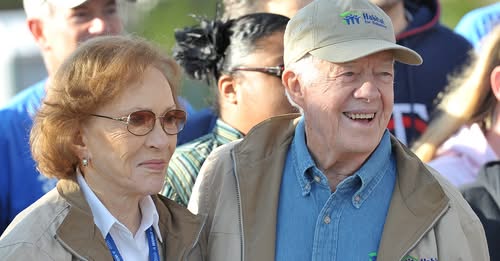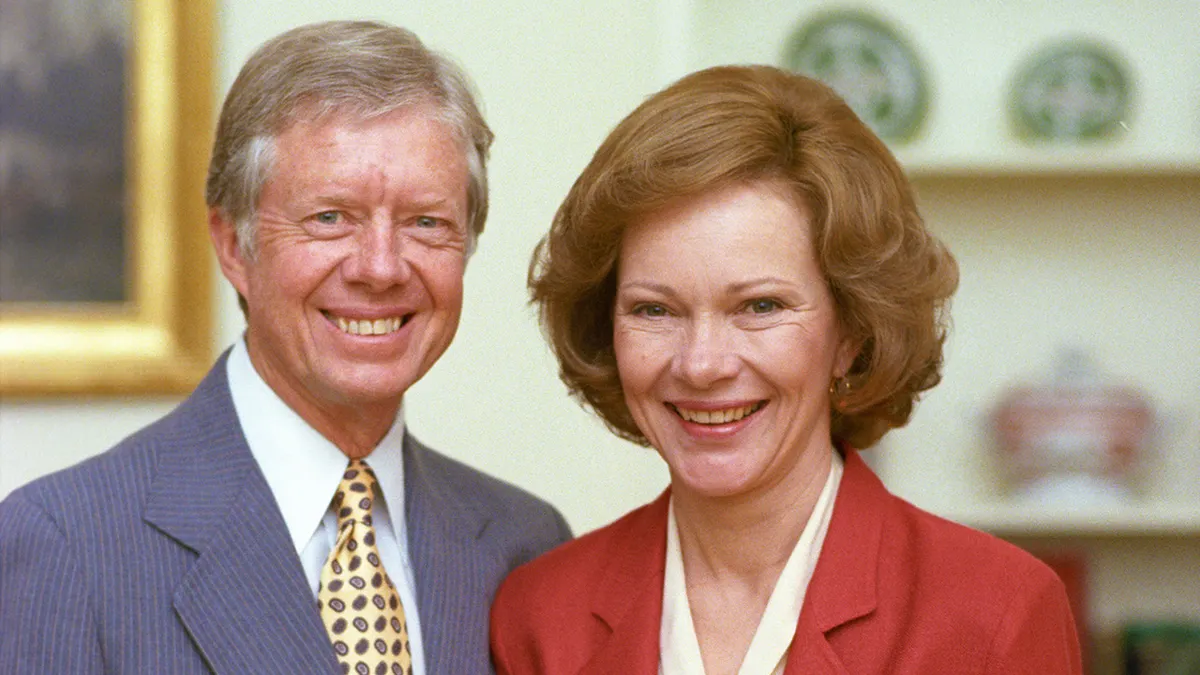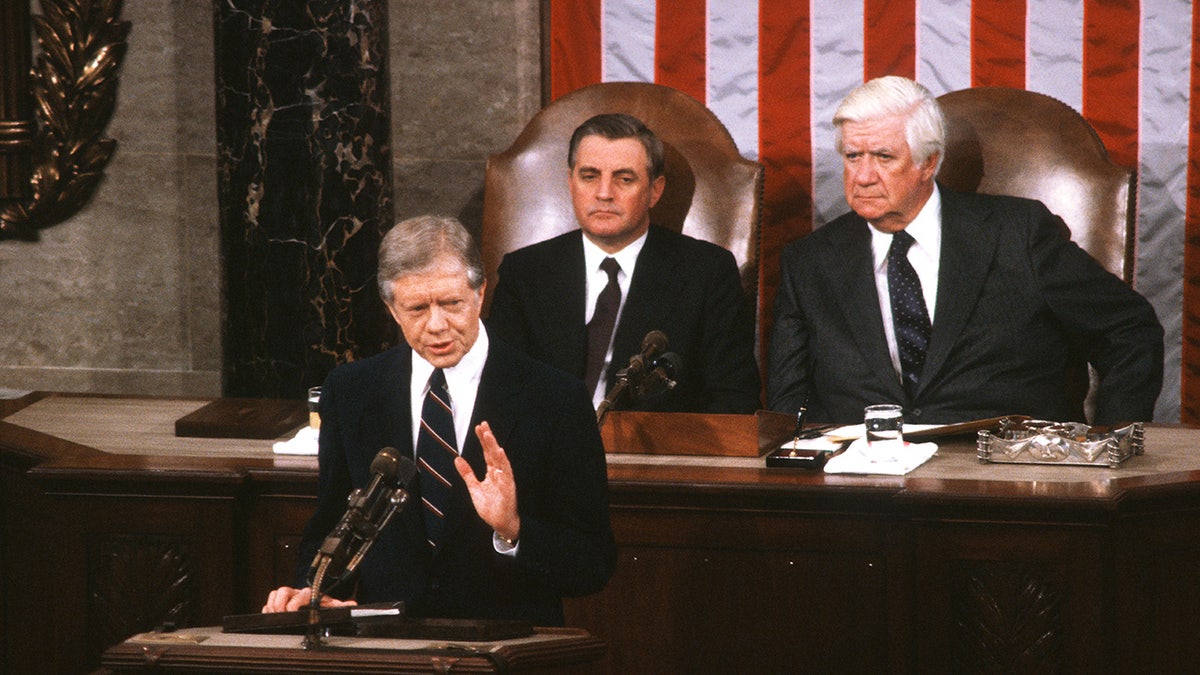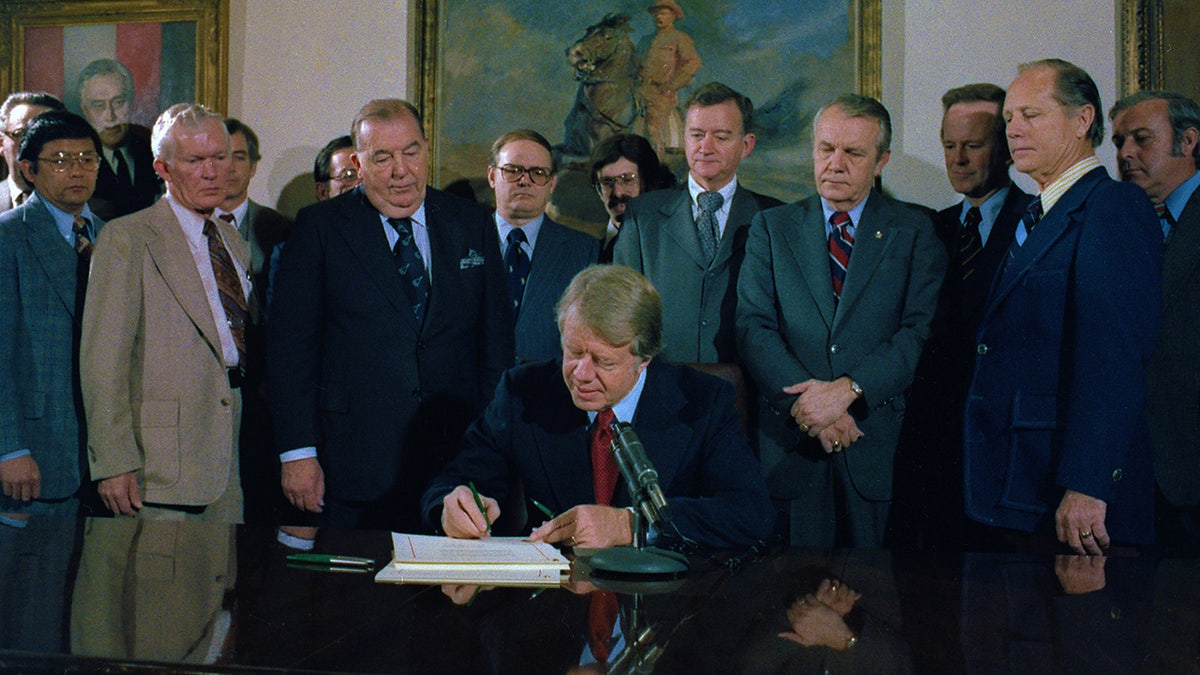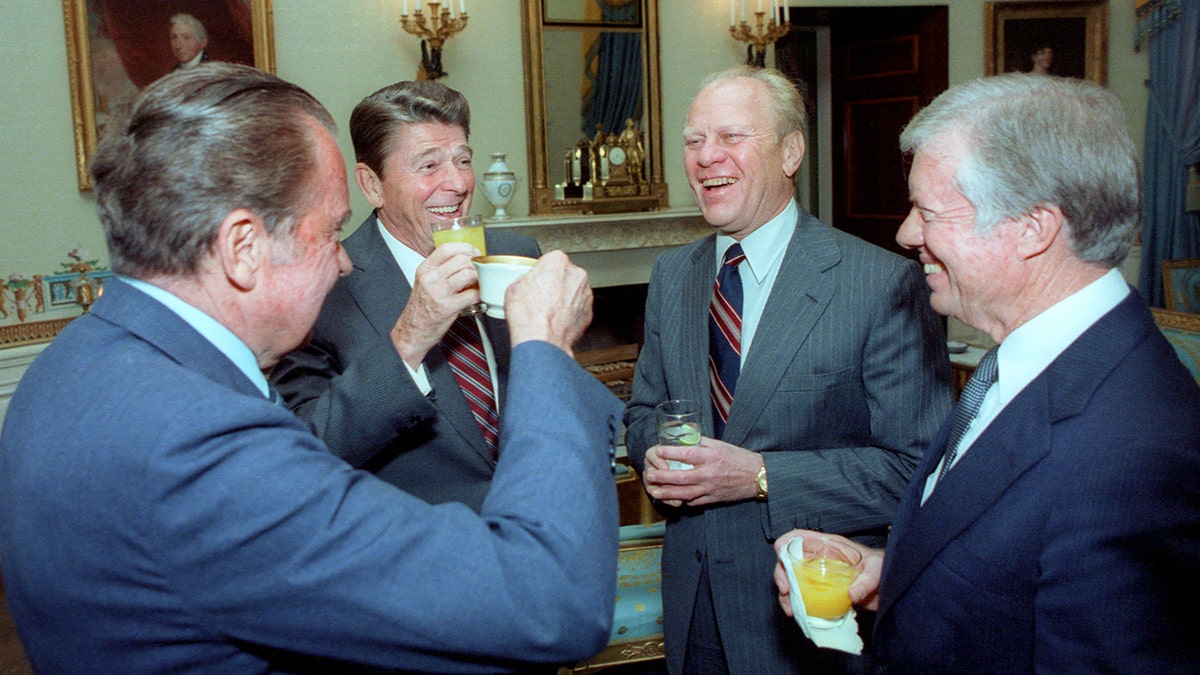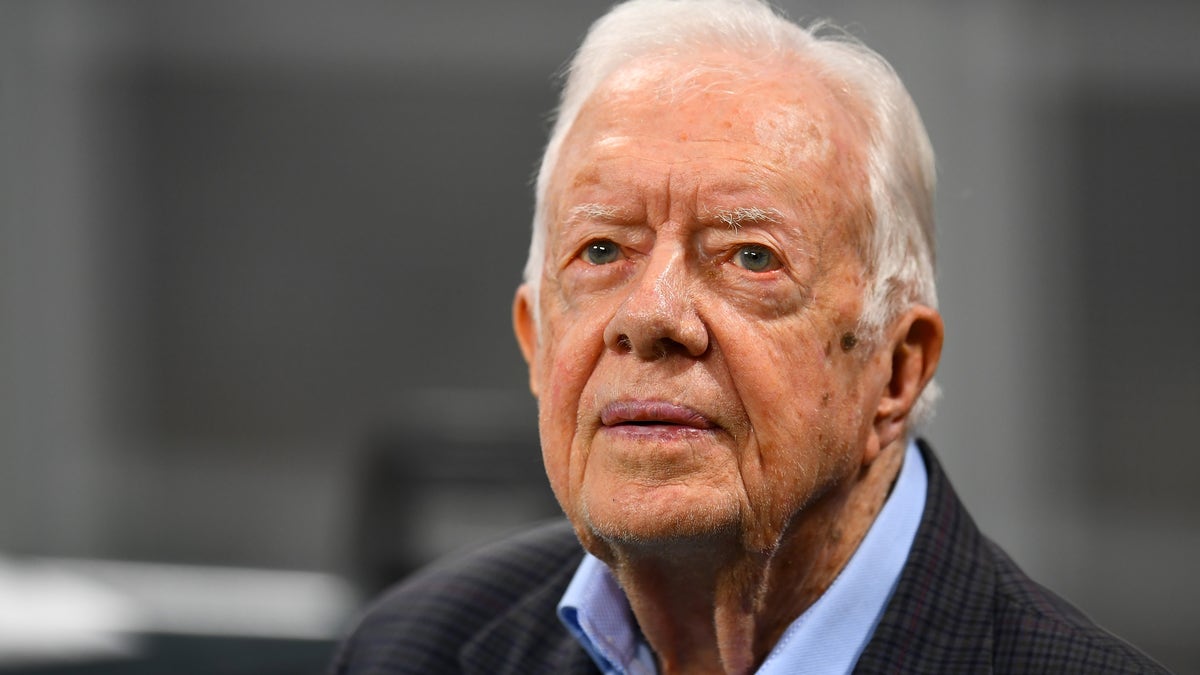Jimmy Carter, the 39th president of the United States and a former peanut farmer whose vision of a “competent and compassionate” government propelled him into the White House, died at his home in Plains, Georgia, on Sunday, the Carter Center confirmed. He was 100.
The news was first reported by the Atlanta Journal-Constitution, shortly before the Carter Center, the late president’s nonprofit organization, made an announcement on X. “Our founder, former U.S. President Jimmy Carter, passed away this afternoon in Plains, Georgia,” the organization’s post read.
His specific cause of death was unclear. Carter’s death followed the passing of his wife Rosalynn on Nov. 19, 2023. She died at the age of 96 with her family by her side at the Carter home in Plains, just days after she had been admitted to hospice care.
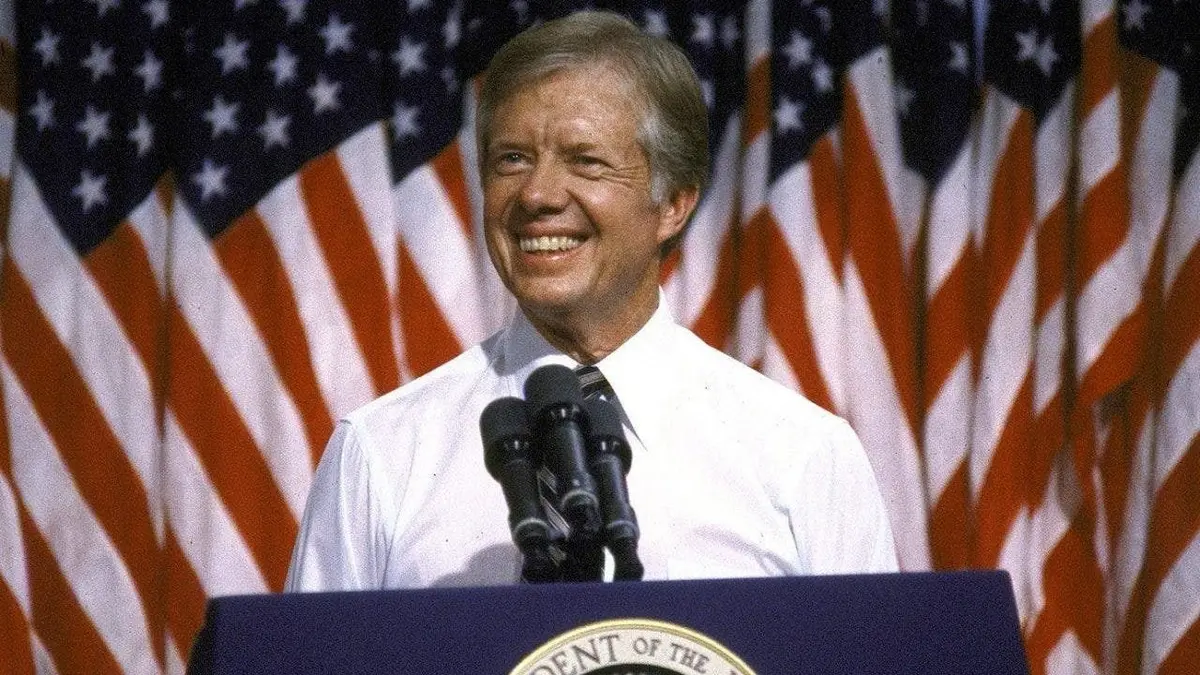
The late former president himself had entered hospice care in February 2023. Carter survived for years after he had a “small mass” removed from his liver in early August 2015 and later that month announced he had liver cancer that had spread throughout his body.
The Carter family had a history of cancer and the former president lost his father, brother, and two sisters to pancreatic cancer. His mother had breast cancer, which later spread to her pancreas.
Jason Carter, Carter’s grandson, had announced in May that he believed the former president was “coming to the end” of his life’s journey. But the former president hung on much longer.
